
Lust in the Dust is a 1984 American Western comedy film directed by Paul Bartel, written by Philip John Taylor, and starring Tab Hunter, Divine, Lainie Kazan and Cesar Romero.

Nevada Smith is a 1966 American Western film directed by Henry Hathaway and starring Steve McQueen, Karl Malden, Brian Keith, Arthur Kennedy and Suzanne Pleshette. The film was made by Solar Productions in association with and released by Paramount Pictures.

Henry Plummer was a prospector, lawman, and outlaw in the American West in the 1850s and 1860s, who was known to have killed several men. He was elected sheriff of what was then Bannack, Idaho Territory, in 1863 and served until 1864, during which period he was accused of being the leader of a "road agent" gang of outlaws known as the "Innocents," who preyed on shipments from what was then Virginia City, Idaho Territory to other areas. In response some leaders in Virginia City formed the Vigilance Committee of Alder Gulch and began to take action against Plummer's gang, gaining confessions from a couple of men they arrested in early January 1864. On January 10, 1864, Plummer and two associates were arrested in Bannack by a company of the Vigilantes and summarily hanged. Plummer was given a posthumous trial in 1993 which led to a mistrial. The jury was split 6–6.

Hunting For Hidden Gold is Volume 5 in the original The Hardy Boys Mystery Stories published by Grosset & Dunlap. The book ranks 111th on Publishers Weekly's All-Time Bestselling Children's Book List for the United States, with 1,179,533 copies sold as of 2001.
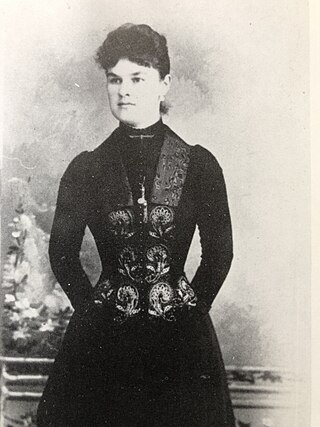
Rosie Lee Reed, better known as Pearl Starr, was an American bordello owner and businesswoman in Arkansas, the first child of Belle Starr, the reputed "Bandit Queen" of the American Old West. Her father was either Jim Reed, Belle's first husband, or Cole Younger, a famous outlaw associated with the James–Younger Gang.
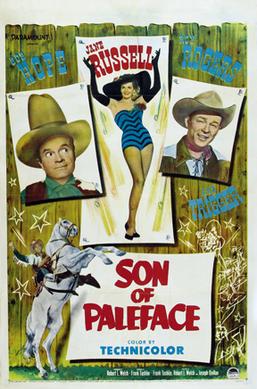
Son of Paleface is a 1952 American comedy Western film directed by Frank Tashlin and starring Bob Hope, Jane Russell, and Roy Rogers. The film is a sequel to The Paleface (1948). Written by Tashlin, Joseph Quillan, and Robert L. Welch, the film is about a man who returns home to claim his father's gold, which is nowhere to be found. Son of Paleface was released in the United States by Paramount Pictures on July 14, 1952.

Jesse James is a 1939 American Western film directed by Henry King and starring Tyrone Power, Henry Fonda, Nancy Kelly and Randolph Scott. Written by Nunnally Johnson, the film is loosely based on the life of Jesse James, the outlaw from whom the film derives its name. The supporting cast includes Henry Hull, John Carradine, Brian Donlevy, Jane Darwell and Lon Chaney, Jr.

Robert Newton Ford was an American outlaw who killed fellow outlaw Jesse James on April 3, 1882. He and his brother Charley, both members of the James–Younger Gang under James's leadership, went on to perform paid re-enactments of the killing at publicity events. Ford went on to operate various saloons and dance halls in the West, before being killed – at age 30 – by Edward Capehart O'Kelley in Creede, Colorado.

Harvey Alexander Logan, also known as Kid Curry, was an American outlaw and gunman who rode with Butch Cassidy and the Sundance Kid's infamous Wild Bunch gang during the late 19th and early 20th centuries. Despite being less well-known than his fellow gang members, he has since been referred to as "the wildest of the Wild Bunch", having reputedly killed at least nine law enforcement officers in five shootings and another two men in other instances. He was involved in numerous shootouts with police and civilians and participated in several bank and train robberies with various gangs during his outlaw days.

Yellow Sky is a 1948 American Western film directed by William A. Wellman and starring Gregory Peck, Richard Widmark, and Anne Baxter. The story is believed to be loosely adapted from William Shakespeare's The Tempest. The screenplay concerns a band of reprobate outlaws who flee after a bank robbery and encounter an old man and his granddaughter in a ghost town.
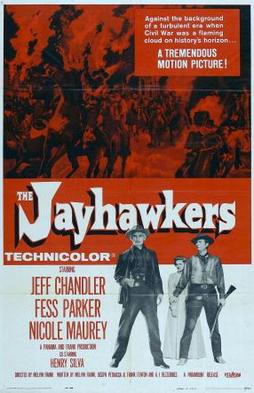
The Jayhawkers! is a 1959 American Technicolor VistaVision western film directed by Melvin Frank, starring Jeff Chandler as Luke Darcy and Fess Parker as Cam Bleeker. The film is set in pre-Civil War Kansas. Darcy leads a gang which seeks to take advantage of Bleeding Kansas ; Bleeker joins the gang. The supporting cast features Henry Silva and Leo Gordon.

Ramsbottom Rides Again is a 1956 British western comedy film produced and directed by John Baxter, starring Arthur Askey, Sid James, Shani Wallis, Betty Marsden and Jerry Desmonde. It was written by Basil Thomas and John Baxter, based on a play by Harold G. Robert, with additional comedy scenes and dialogue by Arthur Askey, Glenn Melvyn and Geoffrey Orme.

Richard H. Barter, known as "Rattlesnake Dick", was born in Lower Canada. Around 1850, he came to California on the Oregon Trail with three other family members. He tried his luck at mining at Rattlesnake Bar during the California Gold Rush. He was twice charged, and once convicted, of being a thief, the second time for stealing a mule. Once the mule and the real thief were found, he was released.
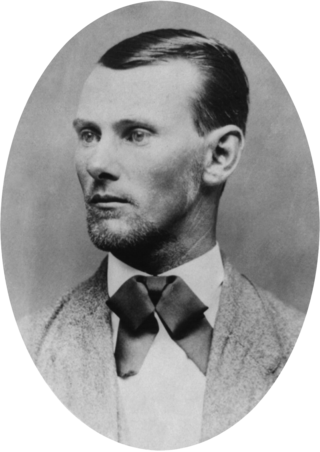
Jesse Woodson James was an American outlaw, bank and train robber, guerrilla and leader of the James–Younger Gang. Raised in the "Little Dixie" area of Missouri, James and his family maintained strong Southern sympathies. He and his brother Frank James joined pro-Confederate guerrillas known as "bushwhackers" operating in Missouri and Kansas during the American Civil War. As followers of William Quantrill and "Bloody Bill" Anderson, they were accused of committing atrocities against Union soldiers and civilian abolitionists, including the Centralia Massacre in 1864.

Go West, Young Lady is a 1941 American comedy western film directed by Frank R. Strayer and starring Penny Singleton, Glenn Ford and Ann Miller. It was produced and distributed by Columbia Pictures.

Outlaws of Sonora is a 1938 American Western "Three Mesquiteers" B-movie directed by George Sherman. It stars Bob Livingston, Ray Corrigan and Max Terhune. Livingston has a dual role as Mesquiteer Stony Brooke and his outlaw doppelgänger Dude Brannen. Films in the Mesquiteer series are normally considered traditional Westerns but Outlaws of Sonora is an exception; it has a revisionist theme as an early example of the Outlaw/Gunfighter sub-genre.
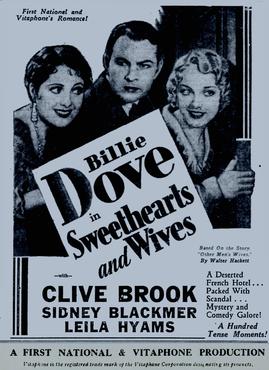
Sweethearts and Wives is a 1930 American pre-Code mystery film with comedic elements produced and released by First National Pictures and directed by Clarence G. Badger. The film stars Billie Dove, Clive Brook, Sidney Blackmer and Leila Hyams. The film was based on the 1928 West End play Other Men's Wives by Walter C. Hackett.
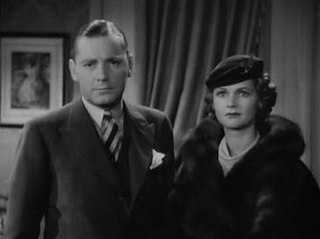
The Solitaire Man is a 1933 American pre-Code drama film directed by Jack Conway and starring Herbert Marshall and Mary Boland.

Gentleman's Fate is a 1931 American pre-Code drama film directed by Mervyn LeRoy and written by Leonard Praskins. The film stars John Gilbert, Louis Wolheim, Leila Hyams, Anita Page, and Marie Prevost. The film was released on March 7, 1931, by Metro-Goldwyn-Mayer, just seventeen days after Wolheim's untimely death.
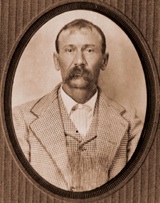
Bill Downing a.k.a. William F. Downing was a notorious outlaw during the Wild West era in Arizona. Downing had fled from the Texas Rangers posse who was after him when he came to Arizona. In Arizona, he was involved in the killing of William S. “Slim” Traynor and in various train robberies including the robbery of the Train Depot in the town of Cochise. Downing was so unpopular that even members of his gang couldn't stand him.




















